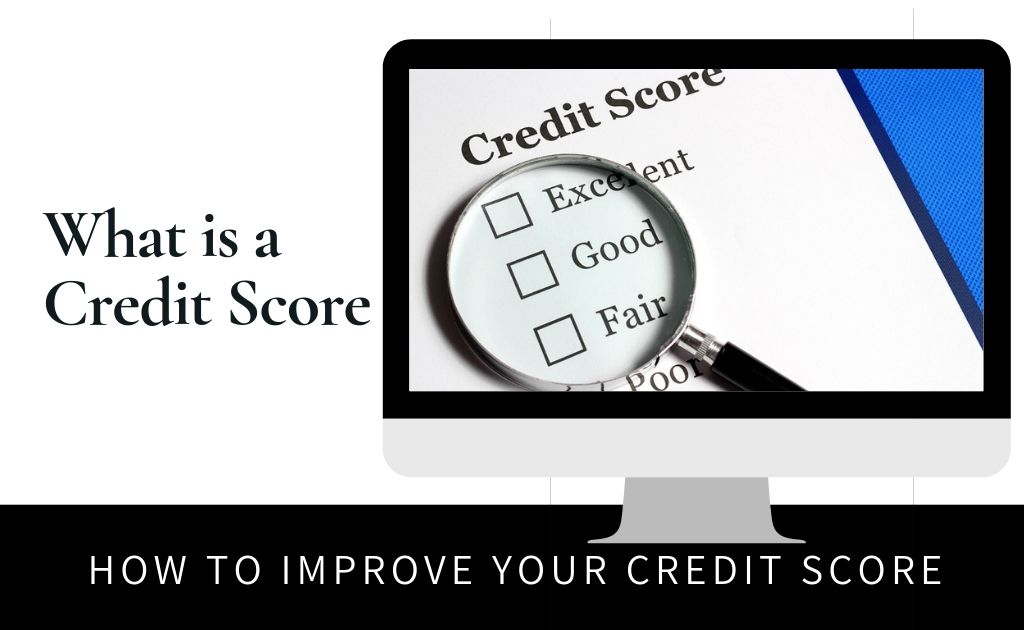What is a Credit Score?
Your credit score is a 3-digit number ranging from 300 to 900. It reflects how likely you are to pay back your debt. Banks, non banking financial companies, and money lenders use your credit score to determine your creditworthiness and to decide whether they should approve your application for a personal loan or a credit card.
 So the closer you are to the score of 900, the stronger is your credit report and the higher are your chances of getting approved for your loan application.
So the closer you are to the score of 900, the stronger is your credit report and the higher are your chances of getting approved for your loan application.
How does it affect Your Credit Report?
A credit report has all the records of your debt history and repayments including your credit cards, personal loans, automotive loans, education loan, and home loan. It includes your personal information like your name, address, contact details, business address, and PAN card.
Your credit report will also reflect the date on which you have taken the loan, your current balances, whether you have made the payments on time and if the accounts are in arrears.
It will also show how well an individual has kept up with his/her debt repayments for all previous and current lenders along with the status of the loan – settled, ongoing, doubtful, etc.
What is a CIBIL Score and why does it Matter?
The CIBIL Score provides banks and money lenders the ability to differentiate between people who have honoured their liabilities in a responsible manner and people who have defaulted. Those who have managed their financial obligations in a timely manner build a good credit score and reputational collateral which puts them in a better position to negotiate with lenders.
So the CIBIL score plays a crucial role in the application process whether you are applying for a credit card or a personal loan. The first thing that the lender checks is the applicant’s creditworthiness and if the CIBIL score is low, the application may be rejected right away.
And if the CIBIL score is high, the lender will consider the application and look into the other details of the applicant like his age, income and other liabilities to determine if he/she can be approved for the personal loan or credit card.
The CIBIL score works just like your first impression on the money lender so the higher your score, the higher your possibility of getting approved. However, the final decision is solely dependent on the lender but typically, a CIBIL score of 700 is considered to be good.
Which Factors Affect Your Credit Score?
The following 5 factors can make a massive difference to your credit score:
-
Your Repayment History:
The repayment record accounts for 35% of your credit score so you need to make all the repayments in a timely manner, every month.
-
Your Debt Level:
30% of your credit score is determined by the overall debt that you are carrying.
So in the case of your credit card, it is the ratio of your credit card’s balance in comparison to your limit. And, in the case of your personal loan, it is the outstanding amount against the original loan amount.
As a thumb rule, your credit card usage should be 30% of your card’s limit.
-
The Age of Your Credit History:
Your credit history accounts for 15% of your credit score and it takes into consideration both the age of your oldest credit account and also the average age of all your credit accounts combined together.
So the older your credit history, the higher is your credit score provided, you have handled your credits right.
-
The Account Mix on Your Credit Report:
Credit accounts can be classified into two categories – revolving and installments. If you have both the types of accounts, it shows that you have experience managing different types of credit accounts like car loan, home loan, personal loan and credit card.
However, the account mix on your credit report constitutes for only 10% of your credit score.
-
The Number of Inquiries You’ve Made for Credit:
Every time you submit an application for a personal loan or a credit card, it goes through a credit check. Such inquiries make up for 10% of your credit score so it is advisable to keep your applications to a minimum within the duration of a year.
How to Build and Maintain a Good Credit Score from Scratch?
If you are just starting out and trying to build your credit score, you can consider following these tips:
-
Apply for a Secured Credit Card:
Apply for a secured credit card that is backed by a cash deposit. This cash deposit will serve as your collateral in case of a missed payment. Just make sure that it reports to all the 3 credit bureaus and make responsible use of the card.
-
Get a Personal Loan:
You can apply for a personal loan and build your credit history with regular repayments. When you don’t miss out on any of your EMIs and use your credit wisely, it works to improve your CIBIL score.
-
Stay on Top of Your Repayments
Pay off your full balance every month since a large part of building your credit score includes timely repayments.
-
Keep a Constant Check on Your Credit Card Utilization Rate and Bills:
Any unpaid bill can have a negative impact on your credit report so to avoid negative accounts from affecting your credit score, make sure you have no credit card or personal loan balance and avoid late payments.
-
Do not Close Your Old or Unused Credit Cards:
The older your credit history, the better it is for your score. So do not close your old credit cards and let your credit accounts age as they will help you build good credit.
-
Track Your Credit Report:
Even if you are doing everything right, errors can affect your credit report. Credit card frauds, inaccurate information and identity thefts can have an adverse effect on your credit report so keep a track and take immediate action to rectify errors so you can maintain a good credit report.
-
Do Not Apply for Multiple Personal Loans at One Time:
The number of personal loans or credit cards that you apply for within a fixed duration should be minimal. When you opt for multiple loans simultaneously, it shows that you are caught up in a debt trap and are struggling with insufficient funds.
Unfortunately, it is much easier to damage your credit report than building your credit score so practice good credit habits, don’t miss any payments, and don’t spend too much.
Can You Get a Personal Loan with no Credit History?
Having a CIBIL Score is a prerequisite for getting a personal loan or a credit card but other factors like your income, your job stability, the brand identity of your employer, your age, and your education can improve your chances of getting approved for a personal loan. However, the loan process may take a bit longer in your case.
Many NBFCs and Fintech companies in India are now offering personal loans and personal credit lines that have easy repayment options. All you need to do is, go online, upload a few income details, check if you qualify, and get approved for a credit line without any paperwork!
About Author: Shiv Nanda is a financial analyst who currently lives in Bangalore (refusing to acknowledge the name change) and works with MoneyTap. Shiv is a true finance geek, and his friends love that. They always rely on him for advice on their investment choices, budgeting skills, personal financial matters and when they want to get a loan. He has made it his life’s mission to help and educate people on various financial topics, so email him your questions at shiv@moneytap.com.












































